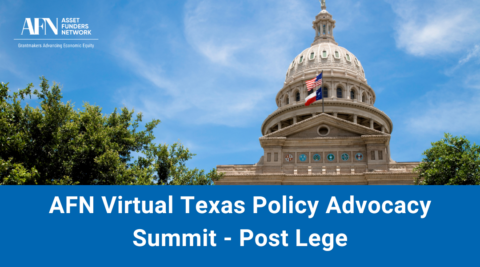 FROM THE PRESIDENT AND CEO
FROM THE PRESIDENT AND CEO
JUNE 2022
Do you believe the United States can deliver on the promise of economic prosperity for all or will it revert to a country that racializes opportunity by law and practice?
Whether you live in a state embracing the recent Supreme Court decisions expanding the right to carry concealed weapons or overturning the abortion right or other rights extended under the right to privacy, the Court has acted to exacerbate inequity, changing the focus on needed systemic change and policy reforms needed.
What does this all mean to AFN? AFN will continue developing our own focus in consultation with our members, with a renewed energy, focus, and commitment to systemic change advancing economic justice.
Handgun and automatic weapons are two scourges particularly in communities of color and in those where economic stress is greatest. It is fairly predictable that greater concealed carry in cities will exacerbate the existing health epidemic – a crisis that gun related injuries, trauma, and death already impose. Fear mongering about violence and crime racializes the violence to focus on reinforcing bias against people of color. There already have been incidents of black security guards or a licensed gun carrier being shot by police for being Black and carrying a gun. The elements of this decision reinforcing White supremacy are inescapable. We have to confront that systemic impact if justice and equity are to be realized.
As for the attack on the right to privacy using the disingenuous political argument disguised as a legal principle that this right is not expressly in the Constitution despite the purpose of the 13th and 14th amendments, the potential to unravel several more decisions advancing equity is real. Reproductive rights, individual agency, and economic security have always been interrelated. The Court’s decision and state trigger laws will have the greatest impact on Americans with the fewest resources, as opposed to the well-resourced. Whether intentional or not, the effects are likely to impede closing the gender wealth gap by creating yet another roadblock to economic stability, especially among women of color and their families. Systemic imposition of economic burdens and wealth stripping to allow governmental and local leaders to intrude into family decisions and health decisions to allow the imposition of misogynistic or paternalistic or religious views reeks of gender and racial injustice when it can fairly be seen as an effort to impoverish and disable the economic potential of women and their families. Only if the same state governments and leaders implementing abortion bans legislate and fund meaningful health, income, and essential care supports in community can this conclusion be different.
We, in philanthropy and community, will need to be relentless until we realize needed systemic changes that reduce economic stress, policy based impoverishment, and violence. That includes making the case to cancel student debt, establish higher minimum wages (indexed to inflation), establish universal health benefits as a baseline tied to outcomes, publicly fund meaningful and sustained guaranteed income, invest in community resources (related to care economy and health outcomes), and expand sustained support for small business and home ownership by those in communities of color historically excluded and being targeted again. These changes are needed for all regardless of class or generation. If explicit research or concerted narrative change efforts supporting the idea that relieving economic stress, reducing instability, and building a future orientation reduces violence in your state are needed, let’s help make that case, let’s commit to invest in what is needed and the active engagement to act, let’s help to develop needed data, use it, and support finding the political will to do what is needed.
Can the United States deliver on the promise of economic prosperity for all or will it revert to a country that racializes opportunity by law and practice? We will be making that choice in the next decade. The time to be innovative, collaborative yet relentless for what works to increase and establish racial and gender justice is our call to action.



